At Mass of Suffrage, Most Holy Redeemer parishioners say losing Pope Francis is like losing a family member: 'It is emotional'
DETROIT — Most Holy Redeemer Parish in southwest Detroit was full of people mourning the death of Pope Francis on April 23 as Archbishop Edward J. Weisenburger led a Mass of Suffrage for the repose of the pope's soul.
The crowds were even larger on Easter Monday, April 21, when parishioners and community members packed the 95% Hispanic parish's pews on the day the pope passed away at age 88, a testament to the love the Hispanic community in Detroit had for the pontiff, parishioner Juan Barbas said.
Pope Francis' impact on Latino Catholics, as the Catholic Church’s first South American pope and first non-European pope in nearly 1,300 years, is hard to overestimate, Barbas told Detroit Catholic.
“On Monday, you should've seen the reaction — it was phenomenal, and that's how you can tell how the community loved him,” Barbas said. “We are all brothers and sisters in God, and losing the pope was hard, and we pray for the new one, so hopefully he will be a good shepherd who leads us to God.”
Barbas added the community will continue to come together for the traditional nine-day period of mourning, during which a novena is prayed. The “novendiale” will begin after Pope Francis’ funeral on April 26 and last until May 4.
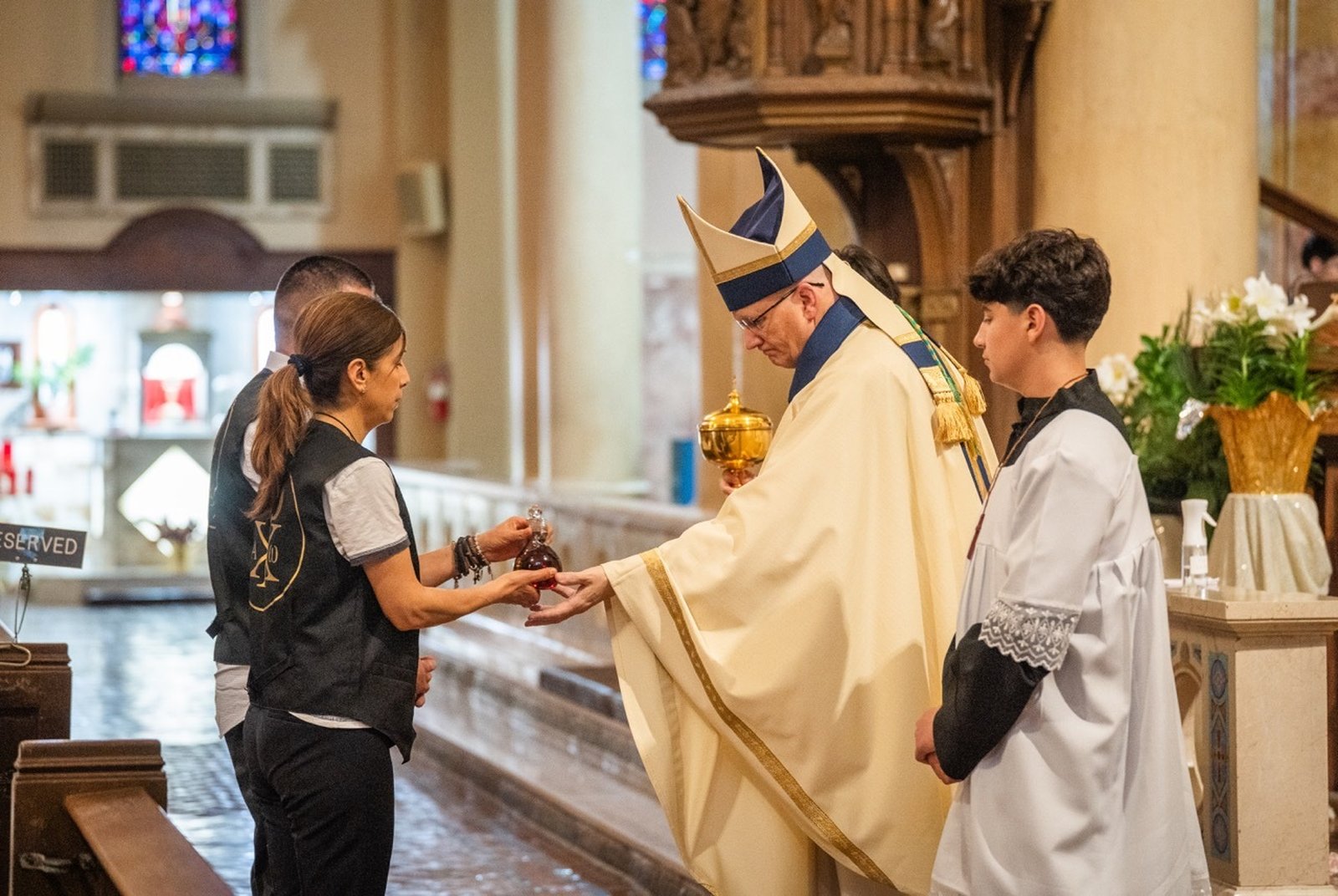
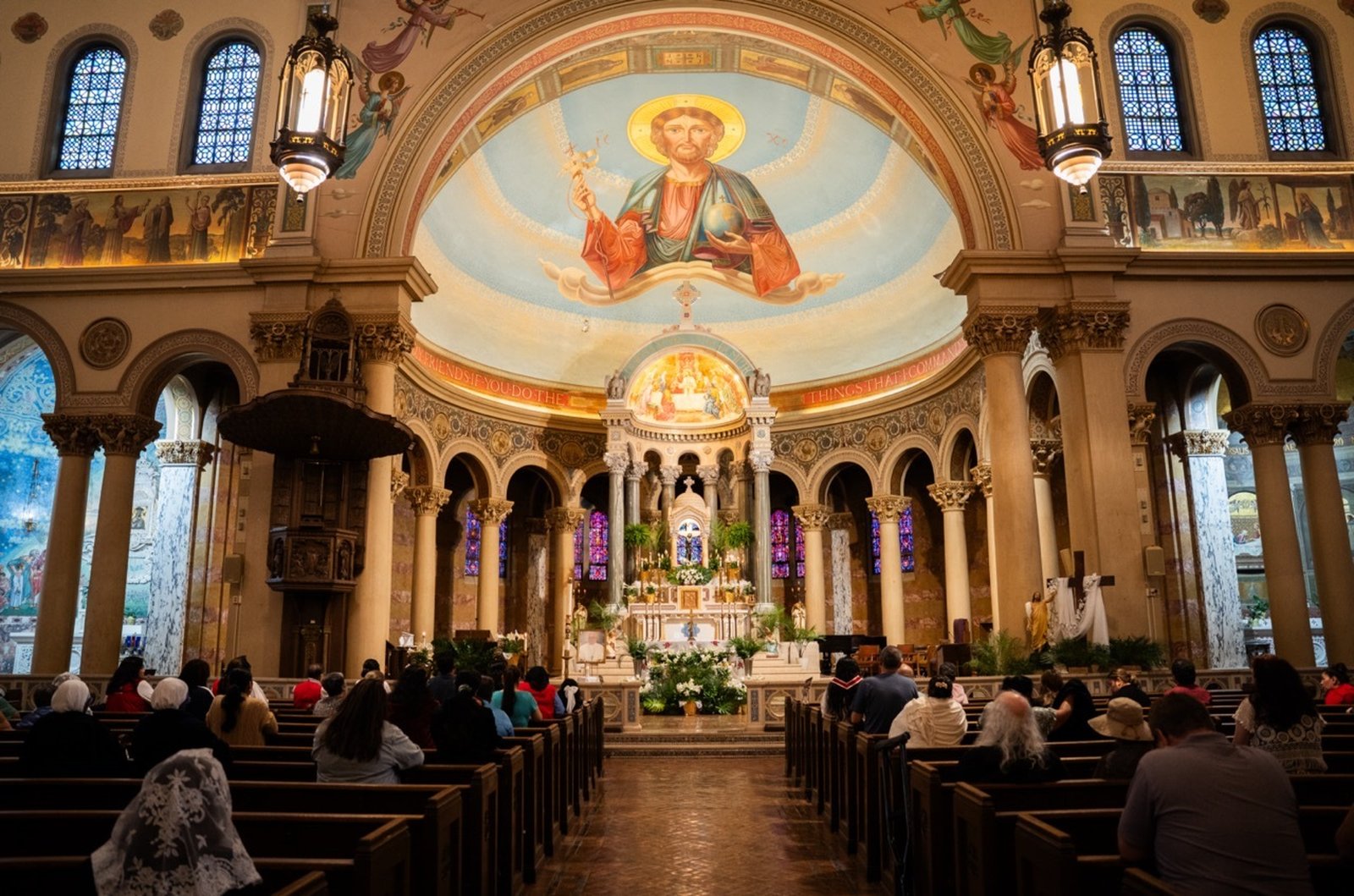
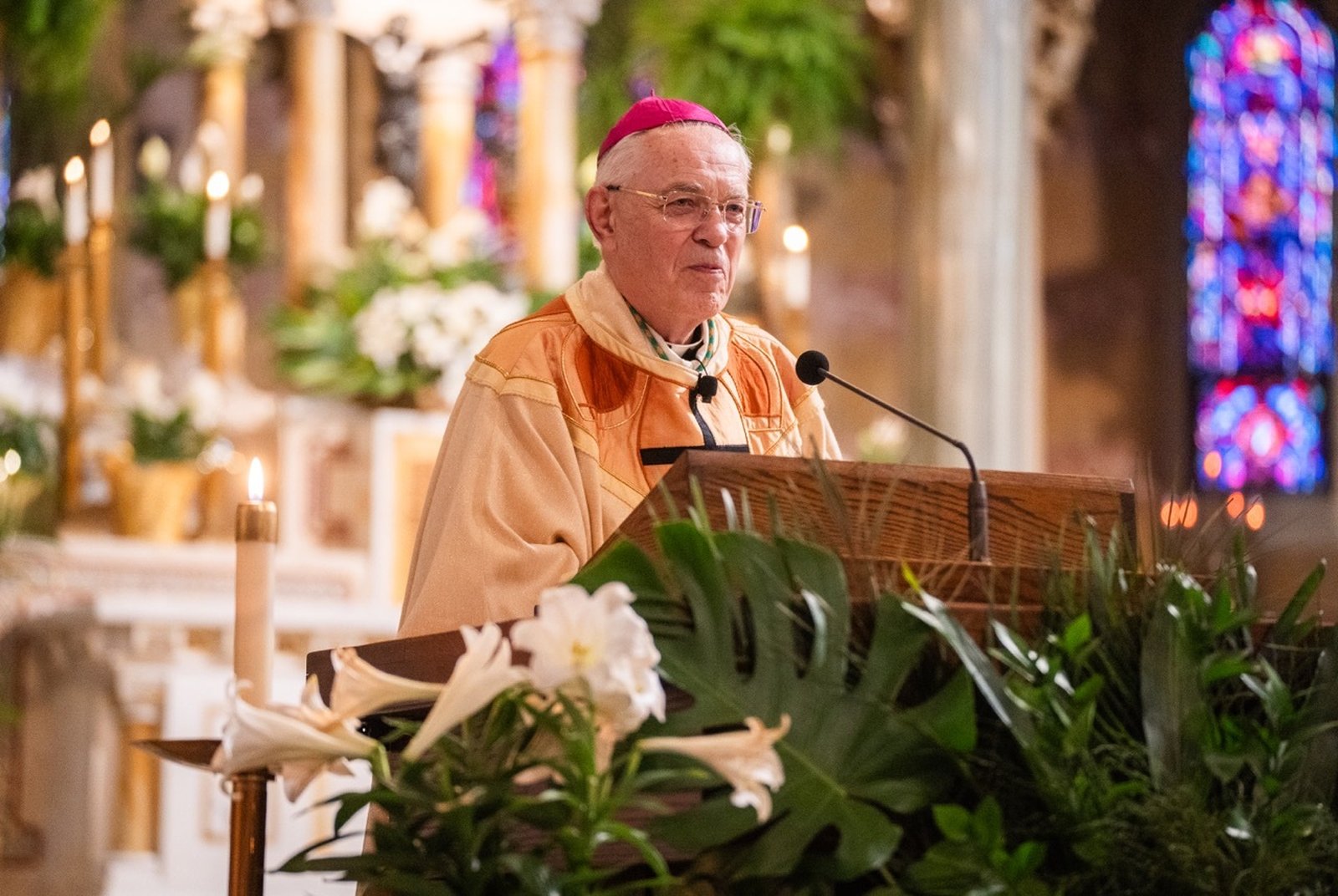
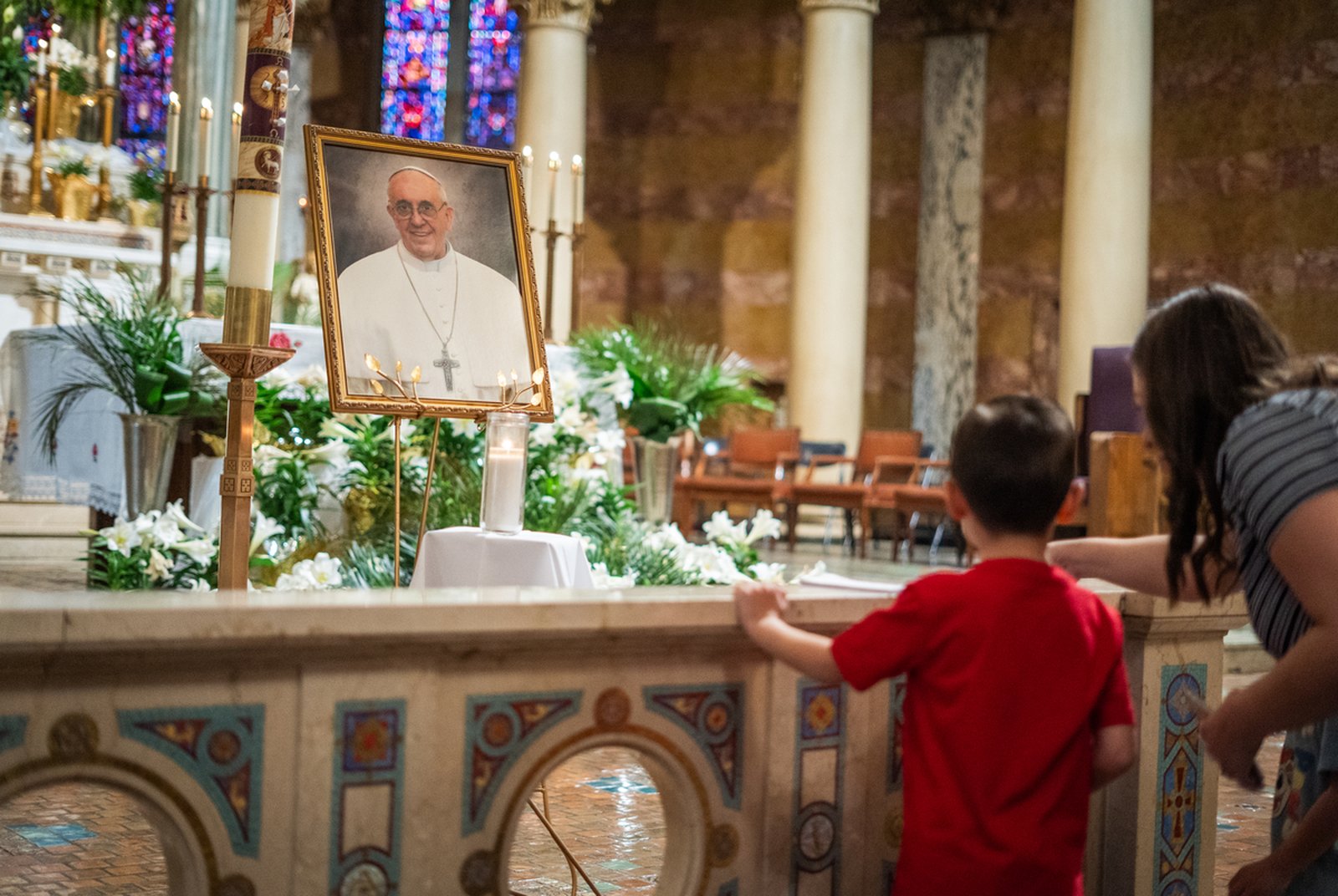
Wednesday’s Mass at Most Holy Redeemer was one of several Masses of Suffrage this week for the repose of the soul of Pope Francis, who has led the Church since 2013. Retired Auxiliary Bishop Donald F. Hanchon offered the homily during the Mass in Spanish.
Born in Buenos Aires, Argentina, Pope Francis’ impact as the first pope from South America went beyond his home country and extended to the Latino community worldwide.
“I think he had a great impact on our community, just that he already spoke Spanish,” parishioner Linda Sanchez said. “A lot of us don’t speak English, and the fact that he spoke Spanish and sometimes preached in Spanish made us become closer to the parish and the Church's teachings. As a Hispanic community, I believe he made us closer.”
Pope Francis was an empowering figure for the Hispanic community, said Sylvia Lozoya, vice president of human resources and community relations for Alliance Catholic Credit Union, which was on hand to provide refreshments for parishioners.
“He understood what we all faced every day and our struggles, even with our faith,” said Lozoya, who attended Holy Redeemer School as a child.
Through tears, Lozoya explained that while Pope Francis understood and saw the Latino community intimately, he also viewed every person as equal.
“He didn't see anything about culture, and I think more than anything, he cared about each of us in the same way,” Lozoya said. “The one thing I can say is that we can learn from him that in this world we are all equal, we're all the same, whether we are poor or rich.”
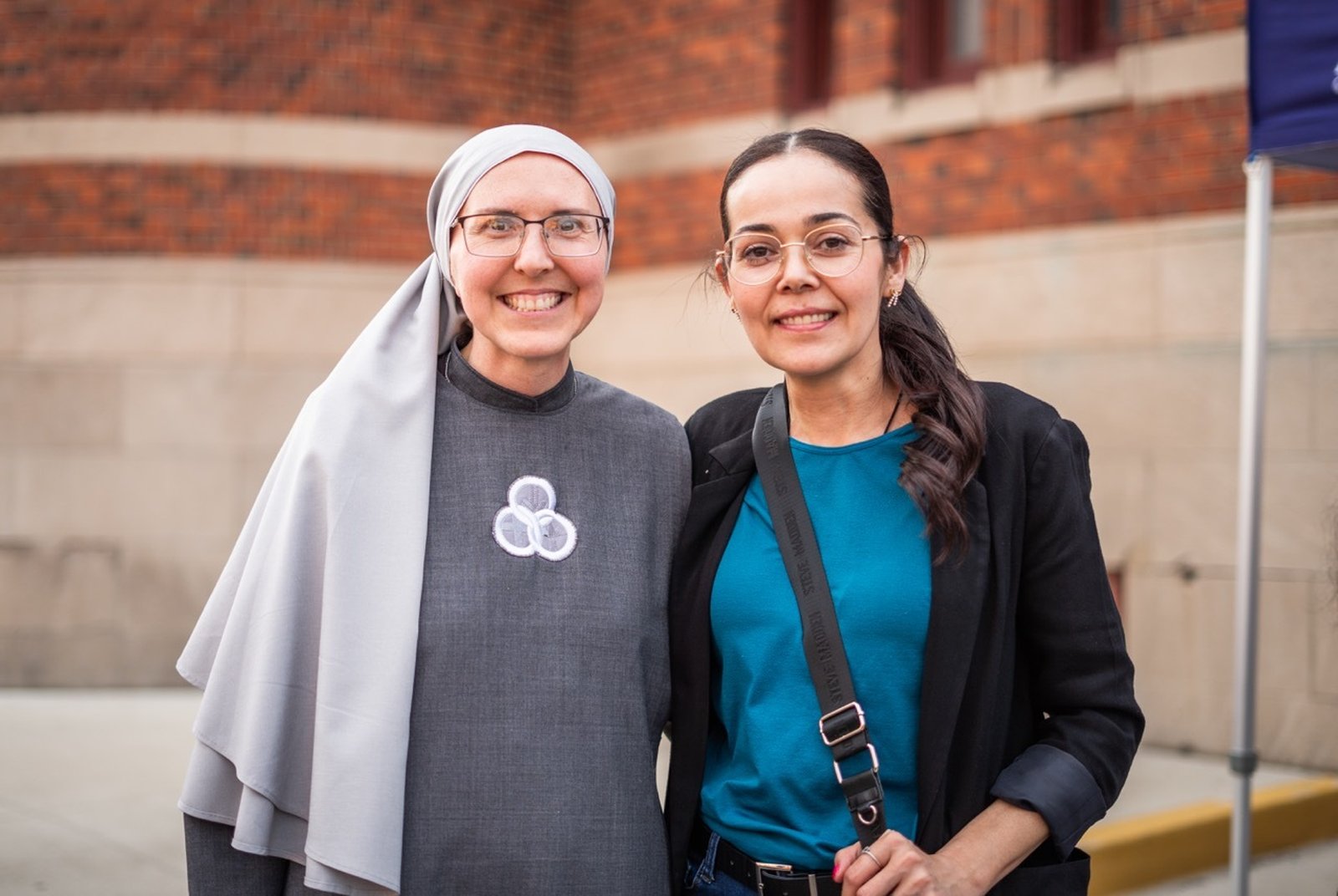
Losing a great leader like Pope Francis, who believed in everyone and who particularly championed the rights and dignity of immigrants, is a painful loss for the Hispanic community, especially as immigrant communities confront the hardships and uncertainty of the ever-changing U.S. immigration policy, Lozoya said.
“There is so much suffering and hurting our Hispanic community,” Lozoya said. “I grew up in this area, and seeing everything going on is sad. I love my community, and right now, my community is going through so much. This is just another example — we lost a really great leader who really believed in all of us. He did not see immigrants as a barrier in this country. It is emotional. We need another leader like him who believes in each one of us as humans more than anything else.”
Carmen Muñoz, Most Holy Redeemer's director of evangelical charity, said losing the pope feels like losing a family member.
“When someone passes away in our family and they’re so close to us, we always say, ‘We’re going to miss them,’ and ‘They were loved.’ And we always take something from them, we always try to remember the best (of them),” Muñoz said. “I think the Hispanic community feels like that right now. We lost our pope, we lost a priest, a dad, a male figure that we would see who would protect us and who would dare to protect all immigrants and advocate for us.”
Muñoz said the Hispanic community remains hopeful that Pope Francis’ successor will also see, hear, and advocate for their community.
“Everyone felt welcome by Pope Francis,” Muñoz added. “We hope and pray that our next pope will bring that faith and that hope that they will be there for us, and there to protect us, and that they will always advocate for immigrants.”
Copy Permalink
papal transition Hispanic ministry













